山口 牧生/Yamaguchi Makio
山口牧生は日本の彫刻家です。1927年、福岡県戸畑市(現・北九州市)に生まれた山口は、その後兵庫県西宮市に移り住み、京都大学文学部哲学科に入学しました。のちに美学美術史に転科し、卒業後は定時制高校に勤務するかたわら、大阪市立美術研究所で彫刻を勉強するようになります。同研究所では、福岡道雄、保田春彦と出会い、影響を受けました。
関西の画廊で個展を開くなどして作品を発表する中、1968年には同じく彫刻家の小林陸一郎、増田正和と「環境造形Q」を結成し、彼らとの共同制作を通して野外の公共空間にモニュメントを設置するという試みを実践していきました。
木彫り、セメント、ブロンズなど、様々な素材を活用した山口が魅了されたのは、「能勢黒」と呼ばれる黒御影石です。そして、その採掘場の片隅にアトリエを構えて制作に打ちこむうちに、彼は黒御影石の表面にベンガラを刷りこむという独自の表現技法に到達しました。自然との調和の中で独特の存在感を放つ山口の作品は、現在も日本各地の美術館で、「自然に近く、自然のままに」という彼のモットーを体現し続けています。
Makio Yamaguchi is a Japanese sculptor. Born in 1927 in Tobata City, Fukuoka Prefecture (now part of Kitakyushu City), Yamaguchi later moved to Nishinomiya City, Hyogo Prefecture, and enrolled in the Philosophy Department of the Faculty of Letters at Kyoto University. He later changed his major to Aesthetics and Art History and, after graduating, studied sculpture at the Osaka Municipal Institute of Fine Arts while working at a night high school. At the institute, he met Michio Fukuoka and Haruhiko Yasuda, who had a significant influence on him.
While exhibiting his artworks at galleries in the Kansai region, in 1968, he formed the “Environmental Modeling Q” with fellow sculptors Rikuichiro Kobayashi and Masakazu Masuda, and through collaborative efforts with them, he practiced installing monuments in outdoor public spaces.
Yamaguchi, who utilized various materials such as wood, cement, and bronze, became fascinated with a black serpentine stone called “Nose-kuro”. As he established his studio in a corner of the quarry, he developed his unique expressive technique of rubbing Bengara (iron oxide) onto the surface of the black serpentine stone. His works, which harmonize with nature and exude a distinct presence, continue to embody his motto, “Close to nature, as it is.” and are exhibited in various art museums throughout in Japan even today.
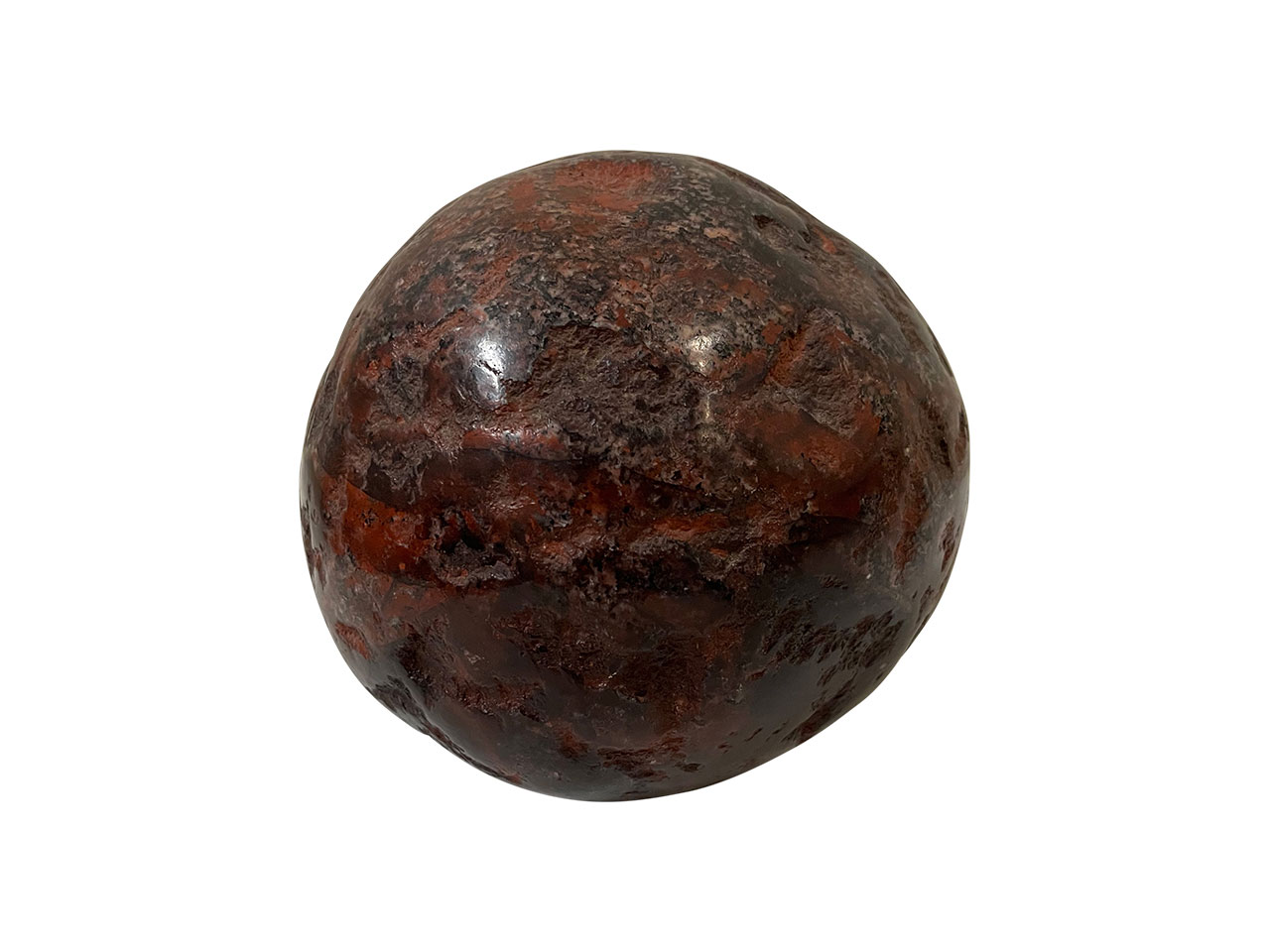
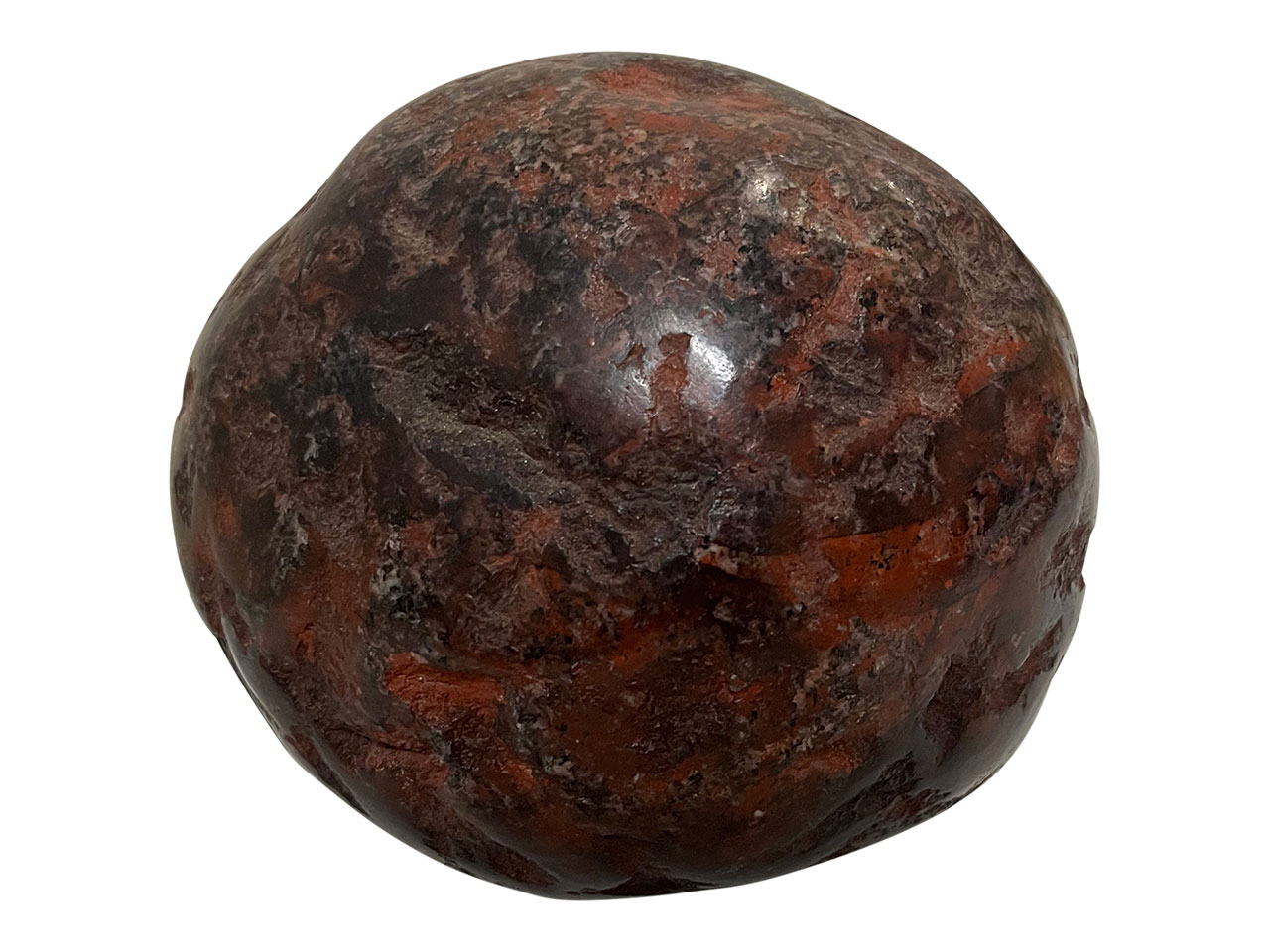
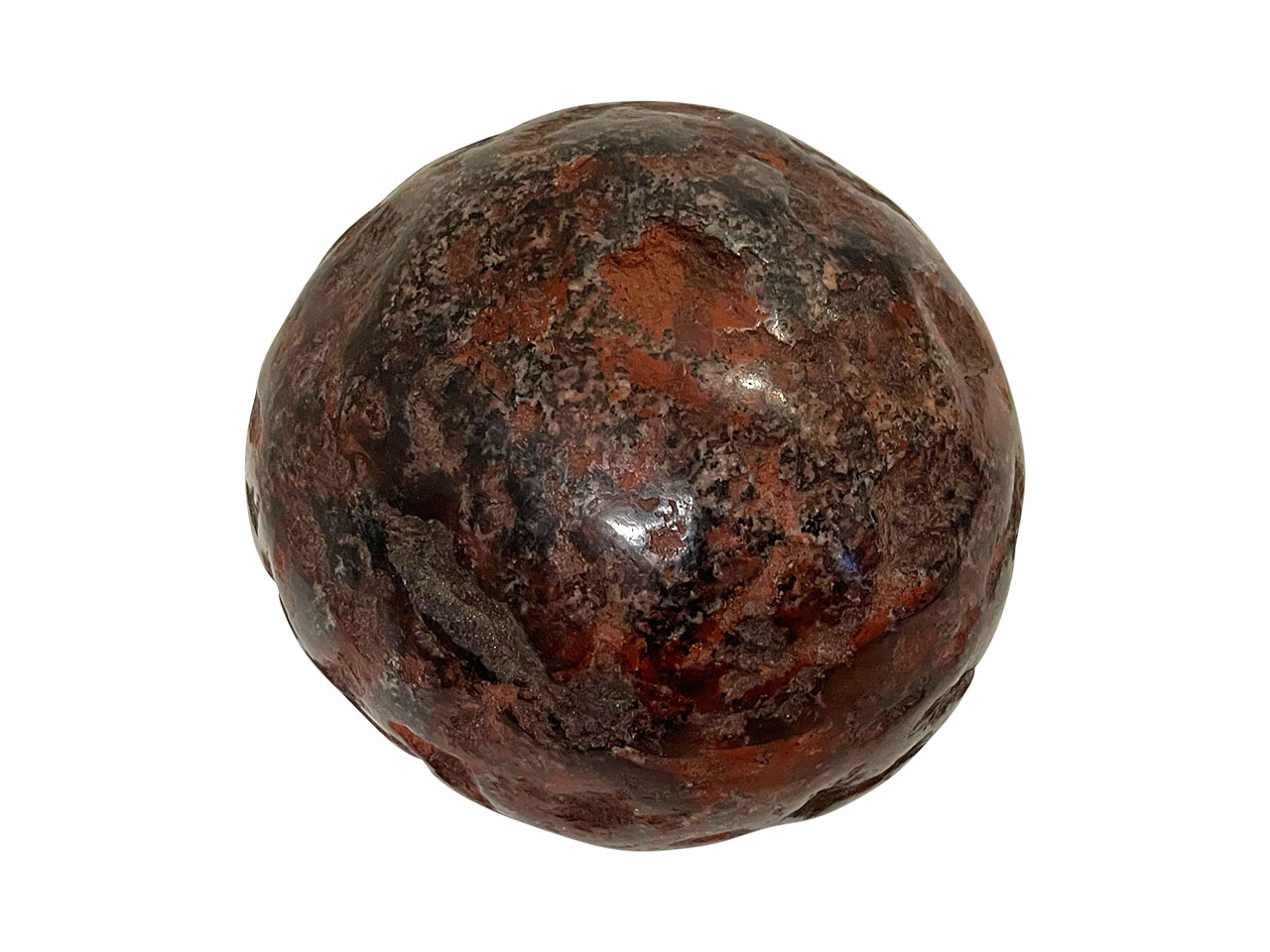
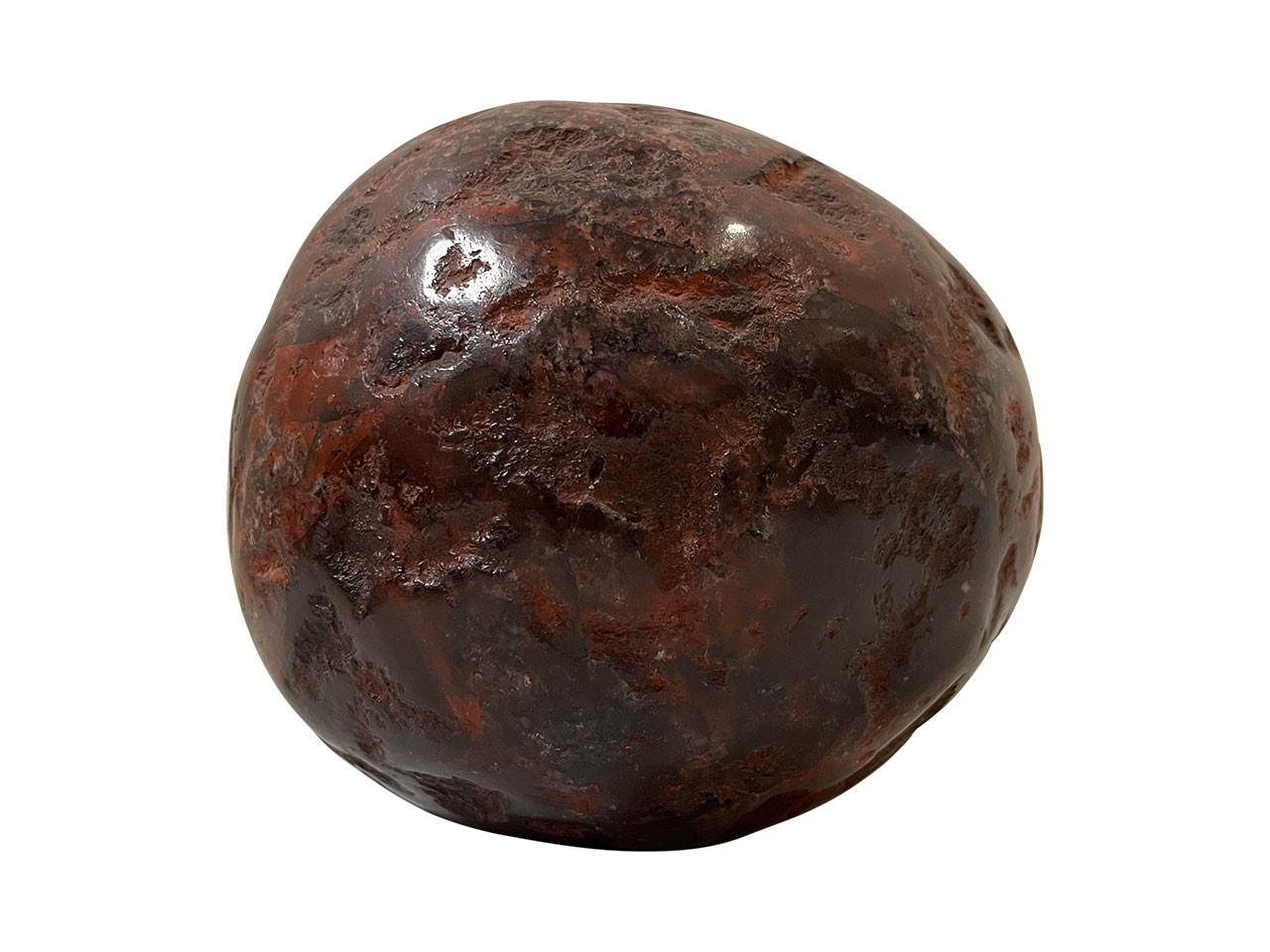
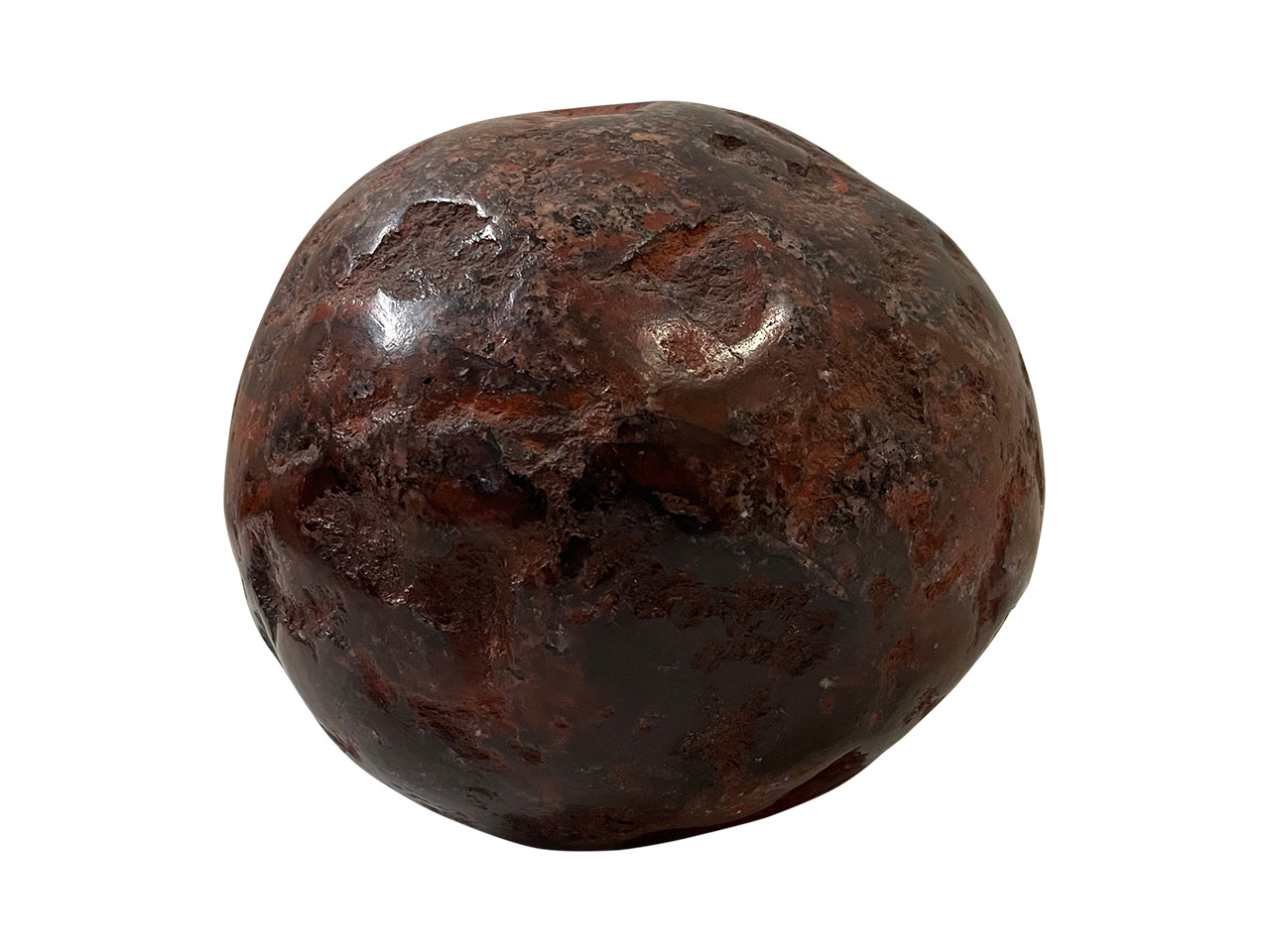
作品名:丸いかたち
サイズ:H16cm×D19cm(能勢黒御影石)
価格:200,000円
価格は税抜き表示です

